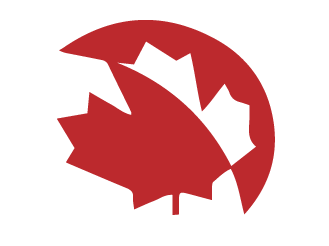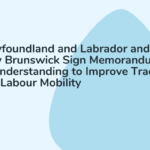June 28, 2023—Bedford, Nova Scotia—Communities across Canada need health workers. The health field is one of several key sectors of Canada’s labour force which is facing unprecedented shortages. To help respond to this challenge, last month, Minister Fraser announced new changes to Canada’s flagship economic immigration program, Express Entry. Now the Government of Canada can issue invitations to apply for permanent residency in Canada to candidates from particular fields or with specific skills, training or language ability.
Today, the Honourable Sean Fraser, Minister of Immigration, Refugees and Citizenship, and the Honourable Jean-Yves Duclos, Minister of Health, announced the use of these new features for a dedicated round of invitations to be sent to health workers, including doctors, nurses, dentists, physiotherapists and optometrists. The first round for category-based selection will open today and will invite 500 health workers to apply. A second round, inviting 1,500 workers to apply, will take place on July 5. This phased approach will ensure the smooth launch of the program.
By focusing on candidates with health care expertise and by bringing in the talent the country needs, this measure will help improve access to health care services for Canadians and their families. Additionally, the first-ever category-based selection rounds support Canada’s commitment to welcoming in-demand professionals and skilled workers into communities across the country. Alongside general invitation rounds, these category-based selection rounds will continue throughout the year, and more details will continue to be announced in the coming weeks.
A dedicated round of invitations for health workers is in addition to existing immigration initiatives to fill labour gaps in the health sector.
- The Economic Mobility Pathways Pilot, for which two new streams were announced a few weeks ago, creates opportunities for skilled refugees and other displaced individuals to use their education, training and experience to continue their careers in Canada. To date, this pilot has seen the greatest uptake in the health care sector with over 50% of the applications received being for candidates working as nurses’ aides, orderlies, and patient service associates.
- In April, changes were made to Express Entry to facilitate the issuance of permanent resident visas for physicians providing publicly funded medical services in Canada.
- In December, the Government of Canada announced $90 million will be invested in projects to help remove barriers preventing qualified and skilled newcomers from gaining work experience in their own profession or field of study.
- Between 2017 and 2022, 21,656 skilled newcomers arrived in Canada to work in health occupations.
Today’s announcement advances Canada’s efforts to retain and recruit health workers to address the health workforce crisis. Supporting a sustainable health workforce is one of the shared health priorities agreed to by the Government of Canada and provinces and territories, outlined in the Working Together to Improve Health Care for Canadians Plan. This plan is supported through a Budget 2023 commitment of close to $200 billion over 10 years, including $46.2 billion in new funding to provinces and territories, to improve health care services for Canadians. As part of these agreements, provinces and territories are also being asked to streamline foreign credential recognition for internationally educated health professionals, and to advance labour mobility, starting with multi-jurisdictional credential recognition for key health professionals.
Quotes
“Health professionals have been working around the clock to provide world-class care to individuals in communities across Canada, but it’s no secret that our health system needs more workers to continue delivering the quality care that people in Canada deserve. I’m excited to be here today with my colleague, Minister Duclos, to announce the first health care category-based selection round, which will increase access to permanent residence for skilled workers with health care experience. We look forward to welcoming many health professionals to our country.”
– The Honourable Sean Fraser, Minister of Immigration, Refugees and Citizenship
“In no sector is the labour shortage more prominent than in the health care sector. Today’s announcement will facilitate, fast track and streamline permanent residency applications and help improve health workforce recruitment efforts by bringing more qualified health professionals into Canada. In return, it will help patients get the timely quality care they need and deserve. We will also continue working with provinces, territories and stakeholders to address the health workers crisis by improving workforce planning, retention, and the streamlining of foreign credential recognition so that new health professionals arriving in Canada can apply their skills and expertise faster.”
– The Honourable Jean-Yves Duclos, Minister of Health
Quick facts
- According to IRCC landing data, skilled newcomers who arrived in Canada between 2017 and 2022 intended to work in the following health occupations (please note these are preliminary estimates and subject to change):
- 10,051 nurses (including registered nurses, licensed practical nurses, and registered psychiatric nurses)
- 4,449 doctors (including 2,013 specialist physicians)
- 2,552 dentists
- 2,054 pharmacists
- 910 physiotherapists (798) and occupational therapists (112)
- 156 optometrists
- 218 dietitians and nutritionists
- 13 chiropractors
- 410 medical laboratory technologists
- 222 medical radiation technologists
- 151 audiologists and speech-language pathologists
- 171 allied primary health practitioners
- 56 paramedical occupations
- 88 respiratory therapists, clinical perfusionists and cardiopulmonary technologists
- 155 dental hygienists and dental therapists
- Express Entry is Canada’s flagship application management system for those seeking to immigrate permanently through the Federal Skilled Worker Program, the Federal Skilled Trades Program, the Canadian Experience Class and a portion of the Provincial Nominee Program.
- In June 2022, the Government of Canada made changes to the Immigration and Refugee Protection Act to allow for the selection of immigrants based on key attributes that support economic priorities, such as specific work experience or knowledge of French.
- On May 31, 2023, Minister Fraser announced the first-ever launch of category-based selection, a new process to welcome skilled newcomers with work experience in priority jobs as permanent residents.
- The categories were determined following extensive consultations with provincial and territorial partners, stakeholders and the public, as well as a review of labour market needs. A complete list of eligible jobs for the new categories is available on our website.
- Immigration accounts for almost 100% of Canada’s labour force growth, helping to addresses labour shortages in key sectors.
- Under the Canada–Québec Accord, Quebec establishes its own immigration levels. From 2018 to 2022, admissions under the Federal High-Skilled program accounted for between 34% and 40% of overall French-speaking admissions outside Quebec.
Source: canada.ca

